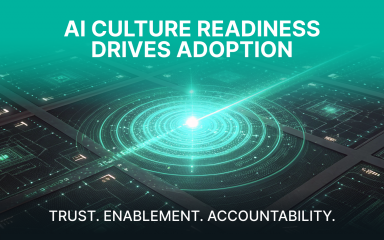Praising architects and software developers is rather common in the information technology industry. However, people often overlook the value of project managers and their contribution to the success of the projects. While not necessarily a tech-savvy person, a project manager is a professional that is responsible for most administrative tasks on the project.
They go about scheduling meetings, distributing tasks, communicating the goals to team members, providing them with feedback, and so on. In simple words, a project manager (PM) is the leader of a team working on a particular project.
Their shoulders are constantly burdened with great responsibility and if a PM acts up, the team may encounter problems with coordination, and thus delivery. Fortunately, there are proven practices that help project managers cope with their challenges and do their job properly. In this article, we will discuss the main tips and strategies that will help project managers bring teams, both in-house and remote, to eventual success. Continue reading if you want to know how to manage a software development team the right way.
How to Manage a Software Development Team: 5 strategies
Straight to the point, let’s discuss 5 main strategies for managing software development teams. From the expertise of our specialists, these simple tips bring them tangible benefits and substantially improve the software development process. These are not the only strategies for excellent PMs, but such simple tips are universal and will work out for almost any project.
1. Choose the Right Software Development Methodology
There are different methodologies for developing software. To do things properly, you should choose the one that fits your project the most. Consider the team size, project objectives, and project management style that fits you most. See the most popular product-based development options below:
- Agile, where the team develops software in short iterations (sprints).
- Waterfall, which is a linear step-by-step model with requirements collection at the beginning and product maintenance at the end.
- Rapid development approach is a methodology aimed at fast project implementation and includes requirements planning, user design, construction, and cutover.
2. Take Advantage of Overlapping Time Zone Hours
Overlapping time zones may be very beneficial in software development, as per Zapier. It may sound surprising, but such conditions are rather rare in the modern world of remote teams. This means that you, as a project manager, can set up a meeting almost any time you need it. Surely, if these are your and your team member’s working hours. As a result, you will get much fewer communication gaps, misunderstandings, and situations that require exceptional flexibility. In turn, the improved consistency will bring you better software development efficiency.
3. Communicate Requirements Constructively
Try to prepare your requirements briefing in advance. Your presentation of project needs, goals, and tasks should be well-structured and insightful. Don’t be personal and avoid unnecessary anticipation. Your main task is to treat your subordinates as solid professionals capable of doing all things properly. So, make sure to explain everything properly and encourage the subordinates to ask questions. You may take a pause only when you see that your team clearly understands everything. If everything is clear with this, you may avoid questions on how to manage a software development team in the future.
4. Use Only the Metrics that Matter
Feedback is essential for successful software development. But no feedback is possible without clear metrics and conclusions based on these metrics. Your task is to choose top-priority metrics for your specific project. If you need to develop an app in the short term, prioritize the speed with which your subordinates solve their tasks. If you need to deliver an error-free product, focus on the number of bugs as your top priority. This list can be expanded with other examples. The key point here is that you shouldn’t pay too much attention to secondary or tertiary metrics. First, it may be a waste of your time. Secondly, such an approach can distract your subordinates and damage your collaboration.
5. Provide All the Right Tools
Nowadays, many project management processes can be automated with various tools. However, not all tools fit your project management style, tasks, or team structure. For example, you may need to use Jira for projects involving multiple tasks because they need detailed dashboards. Meanwhile, Slack may be a dream solution for projects that involve much communication in “chat mode.” Also, in most cases, you will need to use a combination of tools. So, make sure to identify your needs, review the available options, and come up with the most suitable software combination.
How to Lead and Manage a Team of Remote Developers?
Nowadays, many teams work remotely. This brings both benefits and challenges. The main advantage of this situation is that the “talent pool” is no longer limited to a specific location or time zone. The main disadvantages here are time zone and mentality inconsistencies, as well as the lack of in-person communication between team members. These disadvantages create new challenges for project managers. The tips below will help a PM wondering how to manage a software development team remotely.
1. Hire a Team You Can Trust
The lack of in-person communication may mean a lack of trust between team members. So, if you want to rely on your subordinates, you should work with the most trustworthy team. Ideally, it should be composed of dedicated professionals with solid experience working together. With the right people, you will forget about such problems as the lack of trust or miscommunication.
2. Schedule One-on-One Meetings
Even if you are working with the most trustworthy team, you should make sure that you know each of your subordinates personally. When it comes to remote software development, there’s no better option than scheduling one-on-one meetings from time to time. This practice will help you know your team members better and understand their needs, aspirations, or things making them feel uncomfortable. The healthier interpersonal relationships you will build, the more efficiently your team will work on project goals.
3. Encourage Team Collaboration
Your subordinates may be exceptional professionals, but the lack of collaboration may ruin the entire process. That’s why you should encourage teamwork. It is challenging to organize team building for a remote team, but, nowadays, such activities may be handled online. Also, pay attention to any conflicts within your team and solve them as soon as possible. Even though handling all those things may sound challenging, it will definitely pay off. At some point, you will be remotely managing a software development team that works as a well-tuned mechanism and solves all the challenges in record terms.
4. Provide and ask for regular feedback
Providing feedback is one of the most important parts of project management. Your subordinates should know whether they are doing their tasks well. They also need to understand how they can improve their work if needed. Also, regular feedback, whether positive or negative, will help you keep your subordinates motivated. And never forget that you need feedback as well. Ask your subordinates their thoughts about your style and competencies and make sure to use their feedback to improve.
How to Manage a Software Development Team Without Technical Experience
Not all project managers are experienced technology specialists. Sometimes, such tasks are assigned to people without any technical experience. In such situations, communication skills and leadership traits expressed by a PM become critical. And there are also tips that will help even project managers that are far from tech-savvy handle their tasks properly.
1. Define the Most Important Metrics
You cannot evaluate the quality of the code without strong technical expertise. That’s why you should focus only on those metrics that fit your experience. Try focusing on some of the following:
- The pace of task completion;
- Review from QA specialists;
- Budget spent on development;
- Objective software performance metrics.
2. Provide and Listen to Feedback while Managing a Software Development Team
Members of your team are technically savvy professionals. That’s why their feedback matters. You should understand that these people see you as a leader and pay attention to their opinions if you want to improve as a manager. Also, don’t hesitate to provide those people with your own feedback. Even if it seems that they are far more professional than you, the role of a manager makes you responsible for guiding the team. Your task is to help the team understand what you want from them and, if needed, improve their practices.
3. Take Away All Non-Technical Tasks
You cannot handle technical tasks due to a lack of experience. But you can always focus on non-technical assignments if you want to unload your tech-savvy team members. For example, you can focus on:
- Scheduling meetings;
- Communication with customers;
- Task distribution;
- Dashboard management;
- Team coordination;
- Reporting and auditing.
4. Build Relationships to Determine Individual Strengths
Focus on building a healthy climate within your team. Each member of this team has individual motivation and technical strengths. If you understand these factors, you will have much better chances to take full advantage of these strengths. In this case, you will know that all technical sides of the project are covered by corresponding professionals. This will allow you to compensate for the lack of your own professional prowess.
5. Self-Education in Software Development Team Management
Even if you lack technical expertise at a specific point, it doesn’t mean that you cannot improve it over time. Technical skills will always be beneficial for a project manager. That’s why you should focus on self-education. At least, you will be surrounded by experienced tech professionals. You can always use this opportunity to ask the right questions and obtain the right information. If you do everything properly, you may become a real tech expert over time.
Wrapping Up
A skilled project manager is one of the crucial pillars of successful software development. Whether it goes about managing an in-house team, a remote team, or a team without solid tech expertise, a good PM is like an experienced driver who can reach the required destination on time by simply knowing how to handle the car. In business, it is just like in life: the right approach and the right practices will meet you halfway to success.
What is the best PM-engineers combination to look for? Inexperienced engineers run by an experienced manager or vice versa? Well, it is not necessary that some part of your team must be inexperienced, right? If you’re looking for experienced software developments managed by no less experienced project managers, do not hesitate to contact us.











